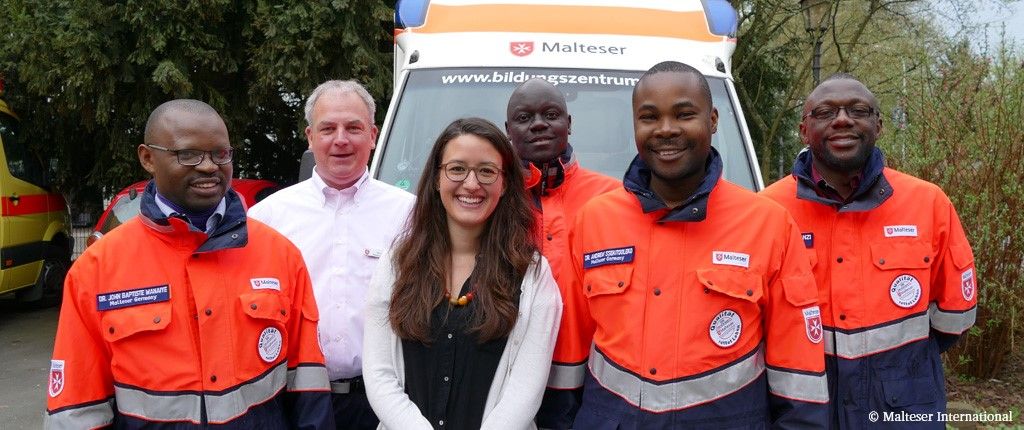
This project has been completed. Check out our new project.
Improving emergency medical services through specialized training and strengthened coordination
Injuries and deaths resulting from road traffic accidents are a growing problem in Uganda. Like in many low and middle-income countries, the increase in motor vehicles coupled with poor safety standards have contributed to this problem. Furthermore, the lack of trained emergency health practitioners and a poor ambulance system mean accident victims do not receive prompt emergency response and appropriate trauma care. Because medical outcomes after an accident are directly dependent on the medical care a victim receives immediately at the scene and after, this delay can compromise the patient's recovery. Only in isolated cases are health professionals specialized in the treatment of injuries, but this service is mostly too expensive for the less privileged. Hence, few lives are saved and avoidable disabilities arise. Currently, road traffic injuries are the leading cause of death in Uganda.
Malteser International is committed to improving ambulance services in Uganda while making emergency health care easily accessible for the local population. In order to achieve this, we are working together with the Ugandan Ministry of Health as well as training institutions and hospitals. Joint planning and the transfer of expertise ensures that all forces of society in the country are engaged in order to sustainably improve emergency response care for injured persons regardless of their financial situation.
Ugandan medical practitioners have, in recent years, undergone training in emergency medical services. Yet, emergency departments are usually operated by general practitioners with little paramedic or trauma training. Neither universities nor hospitals offer specialized training in emergency medical care.
Also, ambulances mostly operated by unqualified personnel are as poorly equipped as the same vehicles for transporting sick people. The absence of a central coordination system in the capital city of Kampala means ambulance services are operated by individual hospitals who usually operate in their direct catchment areas.
In Uganda the high costs of emergency treatment would have to be borne by the person transporting a patient to a hospital in case of doubt. This is usually a deterrent to potential helpers. Many, even life-threatening injuries therefore remain untreated and often lead to death or severe disabilities. Many stakeholders, from hospitals to ministries, are aware of the problem and intend to improve emergency care services across the country.
- Reintroduction of a further education courses in emergency medical care
- Recognition of emergency care and ambulance services as essential parts of health care by relevant social actors
- Establishment of a central control center for the coordinated deployment of ambulances
- Ensure emergency care is accessible to people with limited financial resources
- Development of sustainable financing models
- Establish a regular, formal exchange between relevant social actors for the sustainable promotion of national emergency care
- Workshops with the relevant stakeholders on the development of sustainable financing models for emergency medical care, with particular emphasis on vulnerable sections of the population; Development of courses and curricula for emergency medical care;
Establishment of a joint interest groups for the purpose of legal protection for helpers; - Establishment of a center for the parademic training
- Establishment of a central control center (with a free emergency number) for the deployment of ambulances
- Engaging technical advisers in order to support the process
- Taking nationwide inventory of the state of medical emergency care services
Country info
Capital: Kampala
Area: 241.040 km²
Population: c. 47.8 million
Project data
Project duration:
01 January 2017 - 31 May 2018
Funding:
German Federal Ministry for Economic Cooperation and Development (BMZ)
Last Update: January 2018








